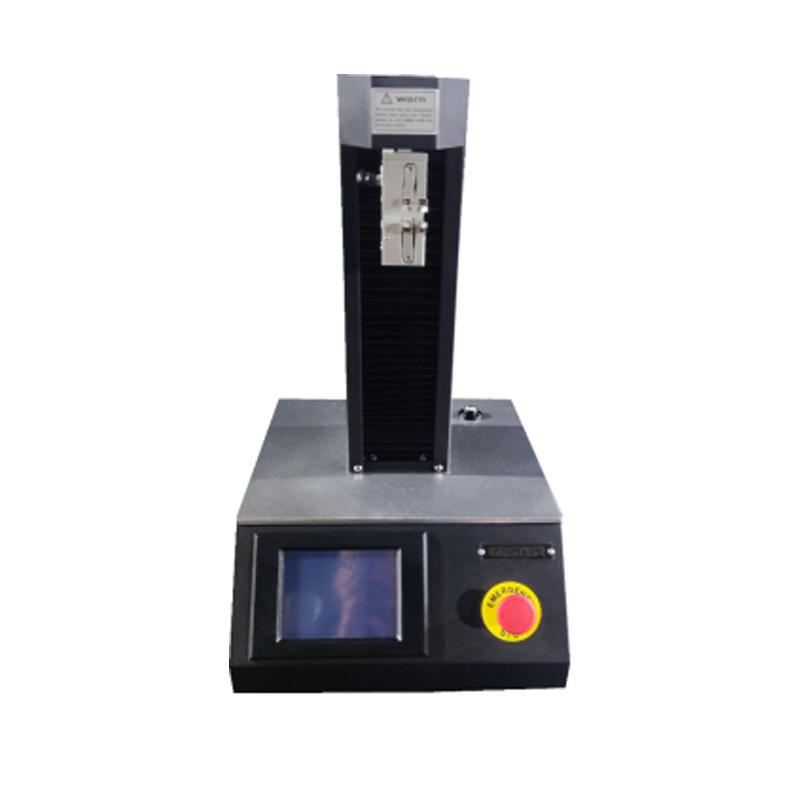Expert tips for maximizing the performance of fibre testing equipment
Wiki Article
All You Need to Find Out About Robotic Vision and Its Applications in Advanced Optical Dimension Systems
Robotic vision stands for a significant innovation in the intersection of computer vision, expert system, and artificial intelligence. This innovation improves the accuracy of optical measurement systems, making it possible for real-time information analysis and boosted quality assurance. Its effect extends multiple fields, from making to medical care. The developing landscape of robot vision raises concerns concerning future capabilities and applications. What innovations exist ahead in this transformative field?Comprehending Robotic Vision: Trick Concepts and Technologies
Robotic vision encompasses the modern technologies and methods that enable makers to translate and comprehend aesthetic details from their environment. This area incorporates elements of computer vision, expert system, and artificial intelligence to facilitate computerized decision-making based on visual information. Trick principles include image handling, which includes the improvement and analysis of pictures to remove purposeful attributes, and item acknowledgment, which enables equipments to determine and classify items within a scene.
The Assimilation of Robotic Vision With Optical Dimension Systems
As sectors significantly require precision and efficiency, the assimilation of robotic vision with optical measurement systems has actually become a transformative method. This harmony permits robotics to perceive and analyze their environments, enhancing the capability of optical dimension systems to evaluate and analyze items with unmatched precision. By equipping optical sensors with sophisticated imaging technologies, robotic vision enables real-time information collection and processing, promoting instant adjustments to dimension specifications.The mix encourages automated systems to discover variations in dimensions, surface top quality, and alignment, which are vital in top quality control procedures. Improved formulas, such as maker learning, additional increase this integration by improving the systems' capability to adapt to different environments and situations. Consequently, the assimilation not just streamlines dimension processes yet additionally lessens errors, making certain that items meet rigid industry standards, therefore strengthening the function of robot vision in the future of optical measurement systems.
Applications of Robotic Vision in Production
In modern-day production atmospheres, the use of vision systems has actually reinvented manufacturing procedures by enabling devices to perform jobs with exceptional precision and rate. Robotic vision systems are increasingly utilized for quality assurance, where they inspect items for problems and warranty adherence to requirements. These systems make use of cams and progressed algorithms to analyze products in real-time, considerably lowering the danger of human error.Additionally, robot vision facilitates automation in setting up lines, permitting robots to accurately identify elements and construct them with very little downtime. This visit this website innovation likewise enhances inventory management, as vision systems can keep an eye on stock levels and find inconsistencies, assuring a smooth supply chain.
In addition, robotic vision help in the execution of clever manufacturing facilities, where information from vision systems can be integrated with various other technologies to maximize operations. Overall, the applications of robot vision in making show its important role in boosting efficiency, high quality, and performance across different sectors
Robotic Vision in Medical Care: Revolutionizing Patient Treatment

In recovery, robot vision help in keeping track of patient progress and tailoring therapy sessions to specific needs. It sustains doctor by automating tasks such as data collection and individual tracking, allowing for even more time to focus on direct patient communication. Furthermore, robotic vision boosts telemedicine by enabling remote medical diagnosis and online consultations, linking the space between clients and doctor. Overall, the application of robot vision in try this health care is revolutionizing patient treatment, causing boosted end results, performance, and patient contentment.
Future Fads and Growths in Robotic Vision Modern Technology
The fast development of robotic vision technology promises to better boost its applications across different industries, consisting of medical care. Future fads indicate a considerable change towards incorporating fabricated knowledge and artificial intelligence, allowing systems to gain from huge datasets and enhance precision with time. Enhanced sensor technologies and deep understanding algorithms are anticipated to refine object acknowledgment capabilities, permitting robotics to analyze complicated environments extra efficiently.
In addition, the assimilation of enhanced reality (AR) with robotic vision will likely change just how robots assist in operations and diagnostics. This harmony will help with real-time data visualization, improving decision-making procedures. Furthermore, miniaturization of elements will cause even more small and versatile robotic vision systems appropriate for a variety of tasks. As these innovations unfold, markets will certainly witness boosted automation and effectiveness, strengthening robot vision as a cornerstone of innovative technical remedies.
Frequently Asked Questions
What Are the Main Elements of a Robotic Vision System?
The primary components of a robot vision system include cameras for image capture, processors for information evaluation, algorithms for analysis, and actuators for activity. With each other, these components enable robotics to view and interact with their environment properly.Just How Does Robotic Vision Improve Precision in Measurements?
Robotic vision enhances dimension accuracy by utilizing advanced imaging technologies, enabling precise object detection and spatial analysis. This capacity lowers human error, enhances repeatability, and permits real-time modifications, inevitably boosting overall measurement dependability and performance.What Industries Benefit The Majority Of From Robotic Vision Modern Technology?
Numerous industries benefit greatly from robot vision innovation, including production, healthcare, agriculture, and logistics. These fields use enhanced accuracy, performance, and automation, leading to enhanced performance and lowered functional prices in their respective procedures.Can Robotic Vision Solutions Operate In Low-Light Conditions?
Robotic vision systems can indeed function in low-light problems, using sophisticated sensors and algorithms to boost photo quality. This capacity permits them to do efficiently in various environments, consisting of industrial and security applications, even with minimal illumination.What Are the Prices Related To Implementing Robotic Vision?
The costs connected with applying robotic vision vary significantly, affected by components such as cams, software, and combination. Added expenses consist of maintenance, training employees, and potential upgrades to existing systems, which can collect with time.Report this wiki page